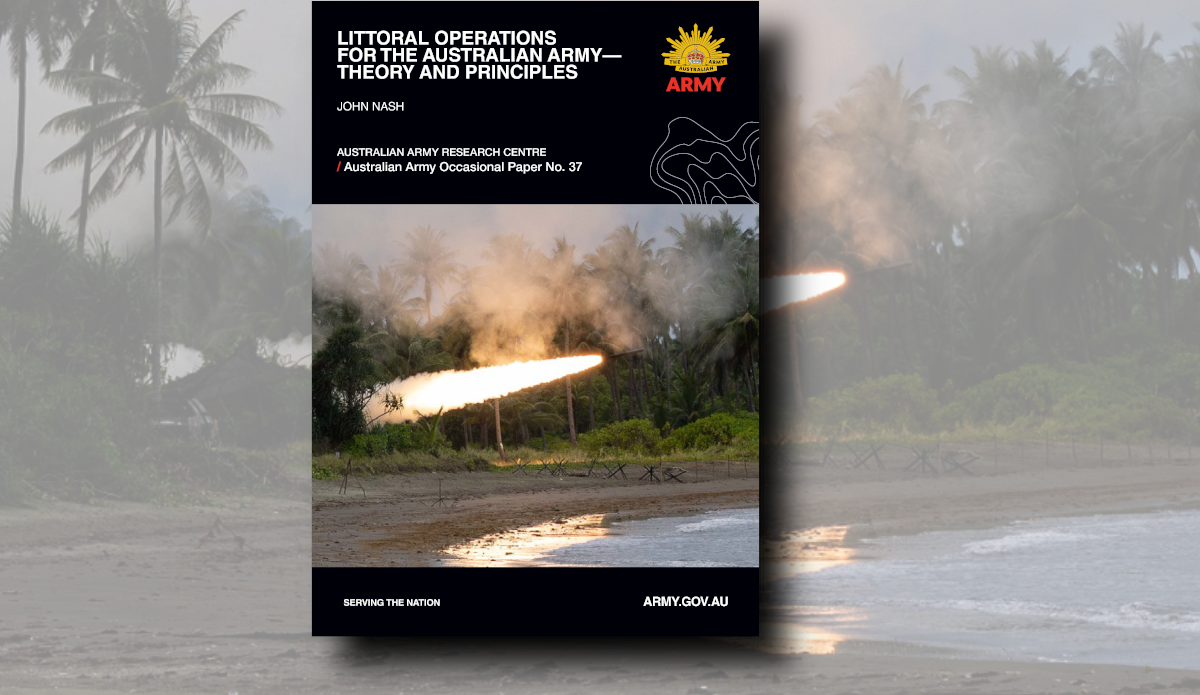Reviewed by Dr Albert Palazzo
By Sean McFate, William Morrow, New York, 2019, ISBN 978-0-06-284358-6, pp.318
Reviewers hesitate to recommend a book too enthusiastically because of the risk that readers will assume one is a friend of the author or that you suffer from a tendency to exaggerate. I can assure the readers of this review that I have never met Sean McFate, the author of The New Rules of War: Victory in the Age of Durable Disorder, and no one has ever accused me of exaggeration. Therefore, when I state that all military practitioners and defence thinkers should read this book and that it should be included on military reading lists, my fulsome and unabashed endorsement should be seen as unreservedly sincere.
For the student of war there are numerous works already in-print on what the future character of war will look like. The current batch tend to feature a future where leaders are aided by artificial intelligent machines and will command enhanced humans and armed robots on a battlefield that was shaped by cyber operations in an environment of high lethality and visibility. These works are admittedly useful and they certainly offer an interesting and effusive perspective to their readers. Yet, they are the professional military education equivalent of a sugar high: fast and fun but not to be taken too seriously.
The New Rules of War is not that kind of book. It is a deeper, more thoughtful tome that forces the reader to think on and challenge existing perceptions. This does not mean it is difficult to read because McFate knows how to write and I found it hard to put down. Rather, many military professionals will find his thesis and his conclusions an assault on their beliefs on how war is supposed to work. McFate is firmly of the understanding that something profound has happened in the art of war and goes so far to commit the heresy of questioning the ongoing relevance of Clausewitz – McFate is definitely in the Sun Tzu camp.
McFate’s thesis is that there are reasons for why the West is on a losing streak when it comes to war. His answer is that war has moved on from the conventional-style that Western militaries prefer, and did so some time ago. If the West is to ‘win’ it must accept that we are now in a new age of ‘disorder’ which means a though rethink on how to fight is needed. The book offers 10 rules for how to make the transition to a way of warfare that is appropriate for our age.
Not all of these rules are revolutionary. If one has not already realised that ‘technology will not save us’ than McFate’s making it his second rule will not change your opinion. Some readers will find other rules truly unsettling, such as number six, ‘Mercenaries will Return.’ In fact, as McFate documents, mercenaries are already here, playing a much bigger role in war and taking a greater share of the casualties than most of the public would realise, or perhaps, approve. The final two rules are the heart of the book: ‘Shadow Rules will Dominate,’ and ‘Victory is Fungible.’ Those orientated toward conventional warfare will find such assertions disturbing, but such rules prosper because they bring success and that is what matters most in war. It is hard to argue with McFate since the US-led West has not delivered in its recent wars. The solution he believes is for the ‘West … to learn how to fight in the shadows.’
Those who prefer the status quo will find this an annoying and frustrating book. This is a shame because while you may disagree with McFate, he will certainly make you think. The New Rules of War challenges the prevailing concept of war and maintains that there is a better way for the West’s militaries to conduct their business. Even if after finishing the book you find yourself in disagreement with McFate, the journey would still have been worth the time.




